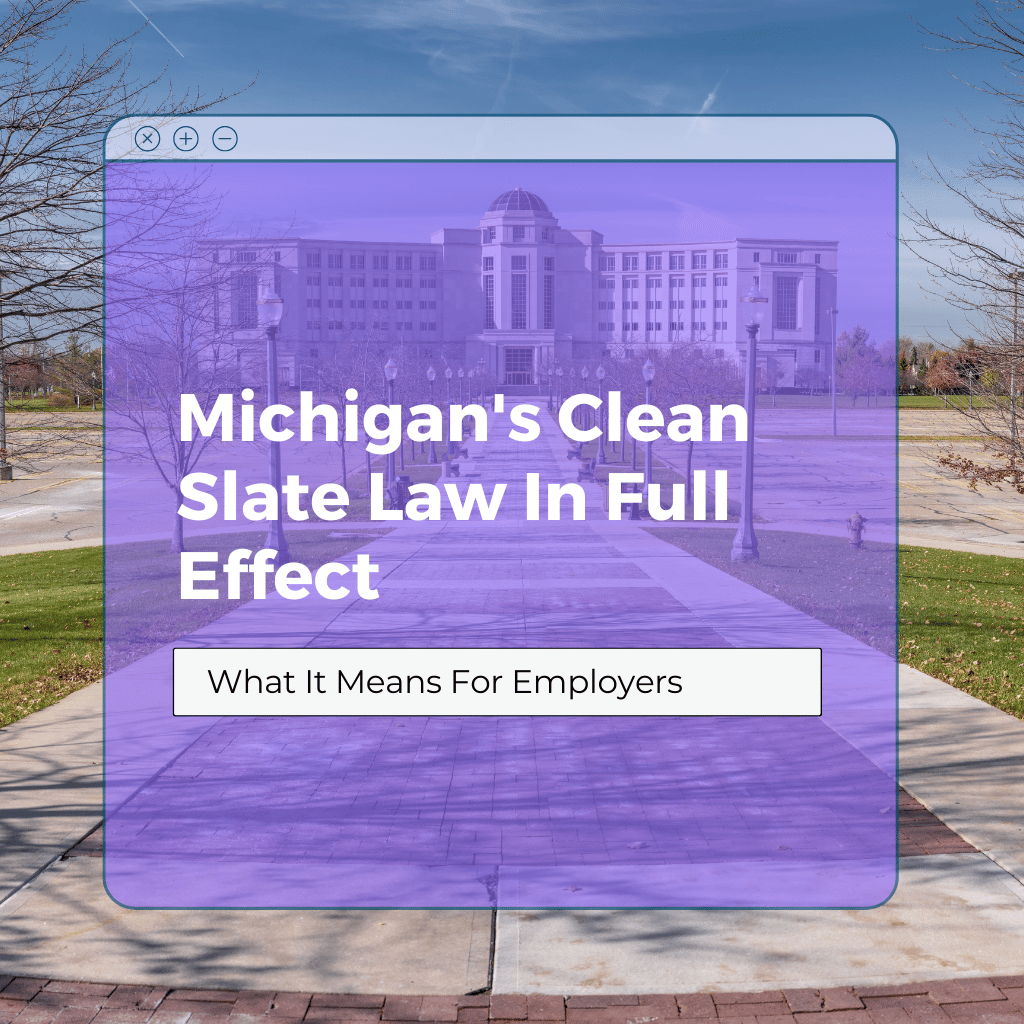Michigan residents can expect a significant impact on their opportunities now that the state’s Clean Slate law has taken effect. For example, one million residents can expect the law to erase specific convictions automatically. However, the Michigan Attorney General recently announced that 400,000 state residents should have seen these convictions expunged.
Michigan’s Clean Slate law took effect on April 11, 2023, bringing a notable shift in the state’s legal landscape. Approximately one million residents could see specific convictions automatically expunged due to this law. Yet, according to a recent announcement by the Michigan Attorney General, around 400,000 state residents were anticipated to have already had these convictions expunged.
Key Takeaways:
- Michigan’s Clean Slate Law: Effective since April 2021, the law began automatic expungements in April 2023 to help reduce employment barriers for those with specific criminal records.
- Wide Impact: Around one million Michigan residents could see their eligible convictions expunged, though 400,000 should have already experienced this.
- Eligible and Ineligible Convictions: Certain misdemeanors and up to two felonies are expungeable after defined waiting periods, excluding serious offenses like assaultive crimes, serious misdemeanors, crimes of dishonesty, high imprisonment offenses, and crimes involving minors, vulnerable adults, or severe injury.
- Implications for Employers: In light of the Clean Slate law, employers must adapt their policies, with assistance from reliable background-checking companies for compliance.
Michigan’s Clean Slate Law
Although automatic expungements started in 2021, Michigan’s Clean Slate law technically took effect in April 2021. This delay occurred because lawmakers included a two-year implementation period, allowing employers and other affected parties to prepare for the change. This implementation period also allowed the Michigan State Police to create an automatic expungement program. This program searches the state’s criminal record databases, informing the courts and expunging eligible criminal records daily.
Eligible Convictions
Any misdemeanors punishable by fewer than 92 days in jail will automatically expunge after seven years. However, the program will expunge up to four misdemeanors punishable with terms of 93 days or longer. Individuals must wait seven years from the sentencing date before seeing automatic expungement for these records.
The Clean Slate law will also erase up to two felony convictions. However, this happens ten years after completing a sentence in the Michigan Department of Corrections facility or after the sentencing date. Additionally, the individual must not have any pending criminal charges and cannot have any convictions during the waiting period.
Ineligible Convictions
Michigan’s Clean Slate law also includes exceptions to what it will automatically expunge. Ineligible convictions include the following:
- Assaultive crimes;
- Serious misdemeanors;
- Crimes of dishonesty;
- Most offenses are punishable by ten or more years imprisonment;
- A crime with elements involving a minor, vulnerable adult, injury or severe impairment, or death;
- Crimes related to human trafficking; and
- Traffic offenses, including DUIs, CDL license holders, or that cause severe injury or death.
Final Thoughts
Michigan’s Clean Slate Act represents one of the most comprehensive pieces of legislation of its kind nationwide. Navigating this intricate law can pose significant challenges for employers seeking to recruit and maintain superior talent. Given the likelihood of similar laws being enacted across the country, it becomes imperative for employers to keep abreast of legislative developments both within their own state.
Teaming up with a background check provider can be a real game-changer in helping your organization play by the rules of local, state, and federal laws, like the Clean Slate Act and Ban the Box laws. JDP is your go-to resource for comprehensive screening solutions. Providing compliant screening services for all industries, encompassing drug testing, criminal background checks, civil records, and more. With accreditation from the Professional Background Screening Association (PBSA), JDP has the requisite expertise to stay informed about legislative changes across every state. We’re here to support you through each stage of the process.
Disclaimer:
Information provided here is for educational and informational purposes only and should not constitute as legal advice. We recommend you contact your own legal counsel for any questions regarding your specific practices and compliance with applicable laws.
